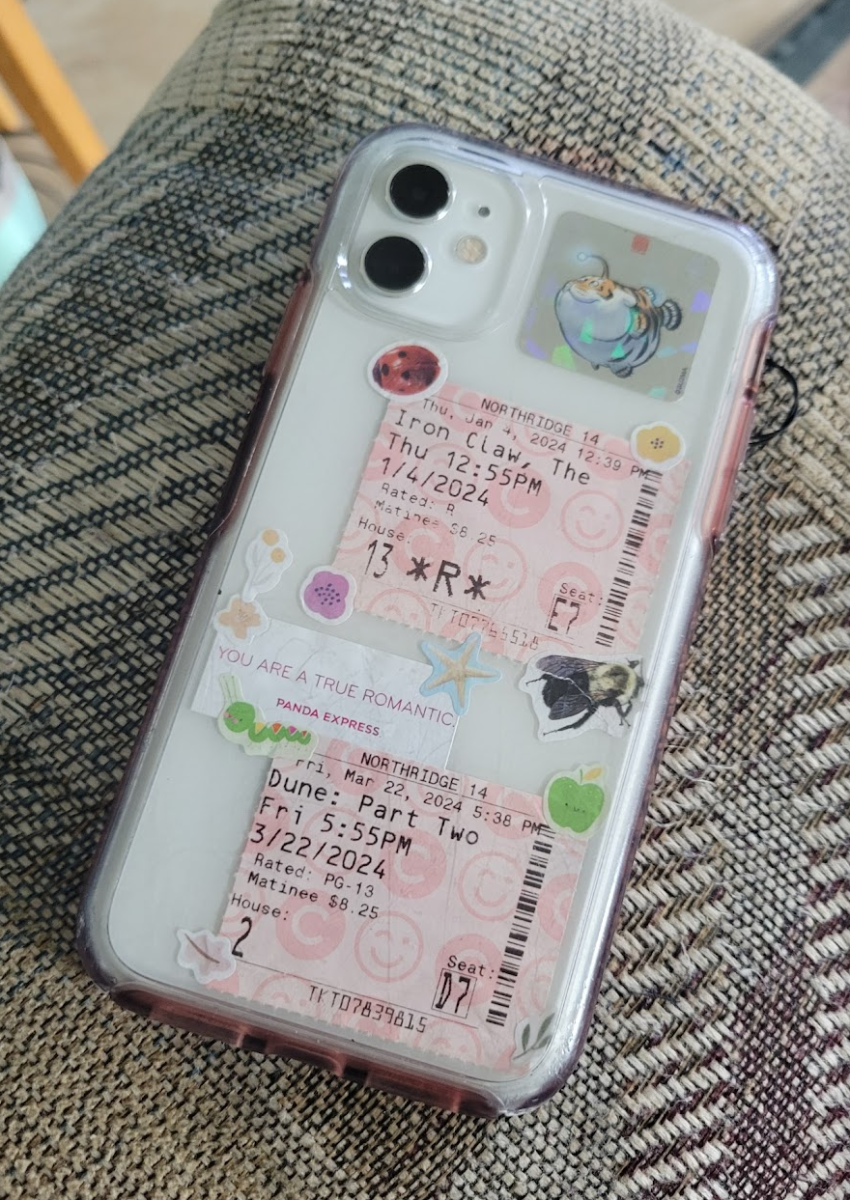Globally, there are now 4.88 billion people with smartphones. This new way of communication has improved the quality of life of many people; however, the Internet was invented and became accessible on our phones, creating a whole new culture in society.
Now, many people are addicted to their screens and it affects their livelihood. The reason why our phones are so addictive is because they release small amounts of dopamine whenever we check a notification, receive a like, or watch entertainment leaving us happy, excited, or satisfied, continuing the cycle of being on our phones.
The majority of individuals who are affected by phone addictions are Gen Z. Many Gen Z’s grew up on the internet and they have formed a connection with it. On average, Gen Z uses their phone for 6 hours and 5 minutes daily. Recently, social media has been a huge contributing factor to phone addictions. Having a phone addiction can pose many problems in your life as well as for those around you, so it’s important to build a healthy relationship with your phone. I know more than anyone how damaging a phone addiction can be, and finding solutions is hard! It’s a series of trial and error.
I struggled with my phone addiction for a long time in my early teens, and I didn’t fix it until these last two years. Like many people, I would deny I even had a phone addiction and I would get upset at my parents for saying, “Because of that damn phone.” It was in fact because of that damn phone (at least some of it).
I slowly came to terms that I had a phone addiction. My wake-up call was when I found myself using social media through my Smart TV because my phone was taken away. I quickly started noticing how I would lose sleep to respond to texts, instead of just opening them in the morning. I noticed that my phone addiction was affecting all aspects of my life; school, family, and friends.
Like others, I went through useless methods like giving myself screen time or setting my phone on grayscale (to reduce dopamine intake), eventually, I would revert to my old habits. As someone with ADHD, I often found myself searching for anything that gave me dopamine, so breaking away from my phone addiction was hard.
But I used that fact to my advantage. I created a system that worked for me and I’ve decided to share it since it might work for you. Although it might not be revolutionary, I created a reward system that would benefit my ADHD and help me stay away from my phone. Here’s how it works.
First, I schedule everything I have to do such as assignments, chores, or tasks on a calendar but creating a list of tasks would be just as helpful. Just formulate a plan of which tasks are easiest and fastest to complete — do those first.
Then, I remove my phone from my perimeter but I still keep it nearby, unlike completely restricting myself from my phone. Once I have everything set up, I challenge myself to complete all of my tasks without interruption.
I mentally refuse to allow myself to grab my phone at all; not until I finish what I need to do. Once I’m doing it, it feels like I’m playing a race against my conscience and I feel the need to “prove” to myself that my mental fortitude is strong enough to not give in to the urges. It may sound silly at first but once it’s put into practice, you will find that it’s quite effective.
Essentially, you’re slowly training to view your phone as a reward that can only be received once you’re done with an important task. The beauty of this method is that it could easily work with any other bad habits as long as you swap the phone with something else. For example, a television, video game, or even a hobby that is distracting you from your time.
I’ve been utilizing this method for over two years now and it’s the only thing that has worked for me. As a result, I’ve been able to create long-lasting friendships, stay on top of my schoolwork, and gain the confidence to be involved in my community. I no longer jump to the weather app in awkward situations or scrolling mindlessly on social media as I’m bedrotting.
Here are some steps that might help you with your phone.
#1: Come to Terms That You Have a Phone Addiction
It’s important to be self-aware and recognize that sometimes we need a break from our screens. Many indicators let us know we might be addicted to our phones. It can cause changes in our cognitive abilities, problems with social or emotional skills, problems sleeping, and mental laziness. Do you ever feel like you can only be yourself over text? Do you have trouble sleeping without checking your phone? Do you check every single notification? Is your phone the first thing you grab whenever you feel bored? You might have a phone addiction!
#2: How is Your Phone Addiction Affecting You?
A phone addiction can affect all aspects of your life. It can get in between your relationships with others, your education, and your mental health. Although humans crave socialization, and phones can be one of the best ways to communicate, sometimes it can get in the way of face-to-face interactions. There have been instances when I’ve tried talking to someone and they’re not present in the conversation because their airpods are in their ears or they’re on their phones. People are also affected negatively in school because of their phones, sometimes they prefer to be on social media than pay attention in class. Along with your relationships and your education, many people suffer mentally because of their phones. Do you compare yourself to others on social media? Do you seek validation online? Do you leave hate comments? These all might be indicators of your phone negatively affecting you.
#3 Find Solutions that Work For YOU!
There are many ways to combat a phone addiction. Not every method will work for someone, it’s important to find something that will keep you motivated and on track. Simple methods often suggest keeping your phone powered off during important events or setting a screen time. While it could be helpful for some people, most people would find it difficult to do. Some people have important things on their phones they need access to, like health information or business calls, therefore; simply powering off your phone would be inconvenient. Also, let’s be real, we might add screen time but as soon as it interrupts us, we just turn it off and continue scrolling on our phones.






















